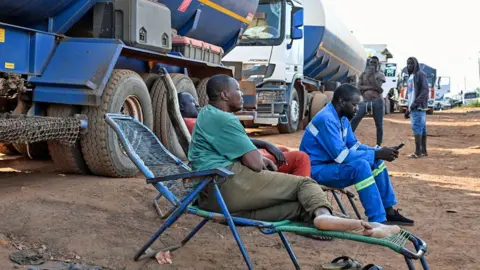
Nigeria’s Urgent Crossroads: Security, Hunger, and a Path to Stability
Nigeria stands at a critical juncture, grappling with escalating security issues, particularly profound religious tensions. Violent extremist groups continuously target communities, and the serious situation hasn’t gone unnoticed internationally. U.S. President Donald Trump, for instance, has notably designated Nigeria a “Country of Particular Concern” due to the systematic persecution of Christians, especially in the nation’s largely Muslim northern areas. The U.S. State Department backs this up, documenting recurring, indiscriminate killings of Christian farming families, often mislabeled as mere disputes between nomadic Muslim herders and settled Christians fighting over scarce resources exacerbated by climate change. Trump’s administration has made religious freedom a cornerstone of American foreign policy, spotlighting Nigeria’s dire situation in hopes of sparking genuine relief. What’s more, Trump says he’s ordered the Pentagon to prepare for possible action in Nigeria, a strong signal of increased readiness to intervene or assist in stabilizing the region. This isn’t just about isolated incidents; these are threats with far-reaching implications, potentially destabilizing West Africa’s stability and endangering global peace. Indeed, Nigeria faces protests and US pressure over these complex cultural and religious conflicts, highlighting the urgent need for resolution.
But Nigeria isn’t just battling security challenges; it’s also dealing with a persistent food insecurity crisis, a struggle keenly shared across wider Africa. It seems paradoxical: despite good weather, many countries, including Nigeria, import significant amounts of food. Why does this happen? Primarily, it’s because agriculture suffers from systemic underfunding, banks are hesitant to finance farming ventures, and external aid is surprisingly limited. In fact, research highlights Africa’s food insecurity linked to poor funding, banks’ reluctance for financing, and negligible aid. Professor David Luke, among other experts, points out that about 70 percent of African countries face food insecurity even with huge agricultural potential. The core problem lies in an economic structure where nations export raw commodities only to import expensive finished food products. This counterintuitive cycle drains local resources and undermines food sovereignty, leaving populations vulnerable to volatile global market prices and supply chain disruptions. Stakeholders are pushing for more agricultural investment and smart, innovative solutions to protect and maximize yields. Consider South Africa, where promising rainfall predictions for the 2025-26 summer crops season could really boost food production if managed correctly. They’ve also made admirable progress in getting insurance to smaller producers, a benefit once thought only for big commercial farms. Yet, the livestock sector faces immediate threats that could undo these gains. A confirmed outbreak of foot-and-mouth disease in South Africa’s Western Cape has prompted rapid veterinary responses to prevent wider spread. This infectious viral disease hurts cloven-hoofed animals, seriously impacting productivity and farmers’ livelihoods. Authorities are warning that negligence in managing outbreaks could lead to prosecutions, stressing stringent biosafety. Meanwhile, new tech, like AI tools, is being used to fight aflatoxin contamination in maize, a dangerous toxin threatening food safety and human health across Africa. Nigeria’s livestock farmers also deal with the ripple effects of insecurity and environmental stressors, complicating herd management and market access. Collaborative efforts, like national surveys to understand and stop diseases such as foot-and-mouth, show a growing dedication to systematic agricultural reform and disease control across the region.
So, what does Nigeria’s path to stability look like? It clearly demands synchronized progress on several fronts. Tackling religious persecution and security threats will require sustained international engagement and sensitive, locally informed interventions. At the same time, reviving agriculture through better funding, supportive financial policies, disease management, and technology adoption can genuinely break the cycle of food dependency and foster economic empowerment. The challenges are daunting, yes, but they aren’t insurmountable. With political will, smart investment, and grassroots participation, Nigeria absolutely can shift from vulnerability to resilience. This transformation holds immense promise not just for Nigeria, but for the entire African continent, whose prosperity really does hinge on stable security and robust food systems.








